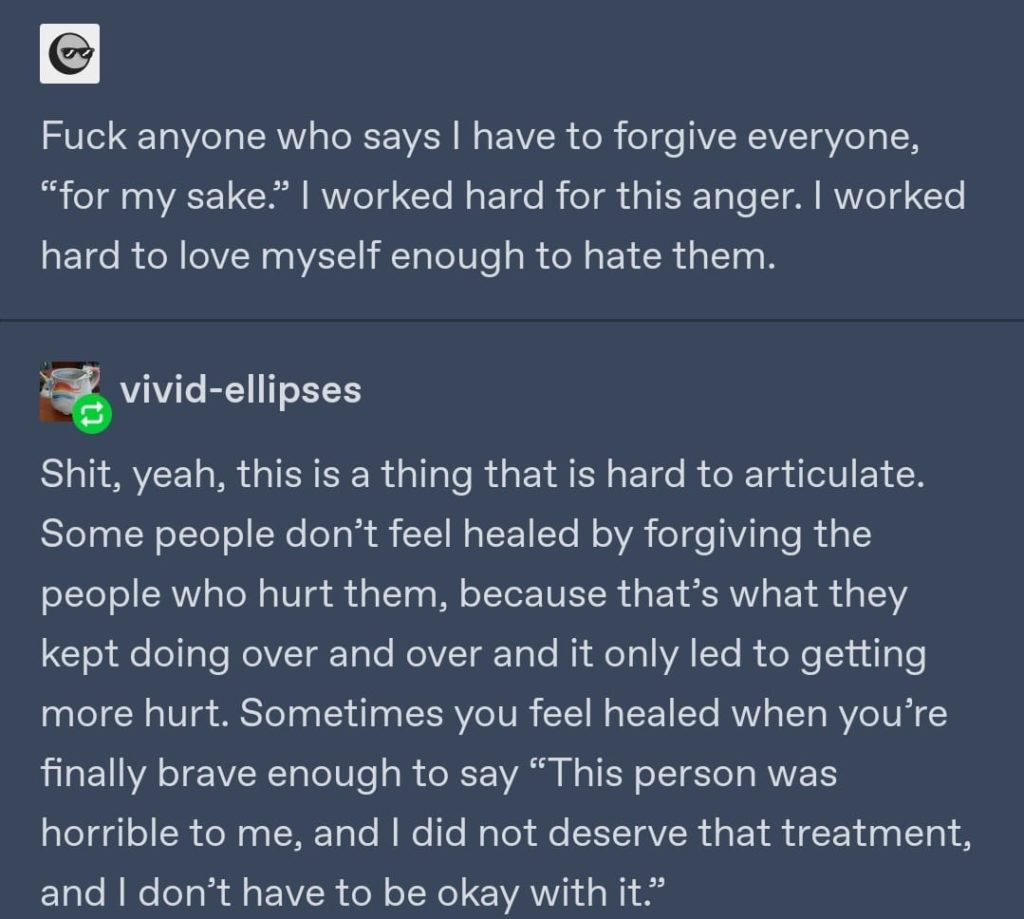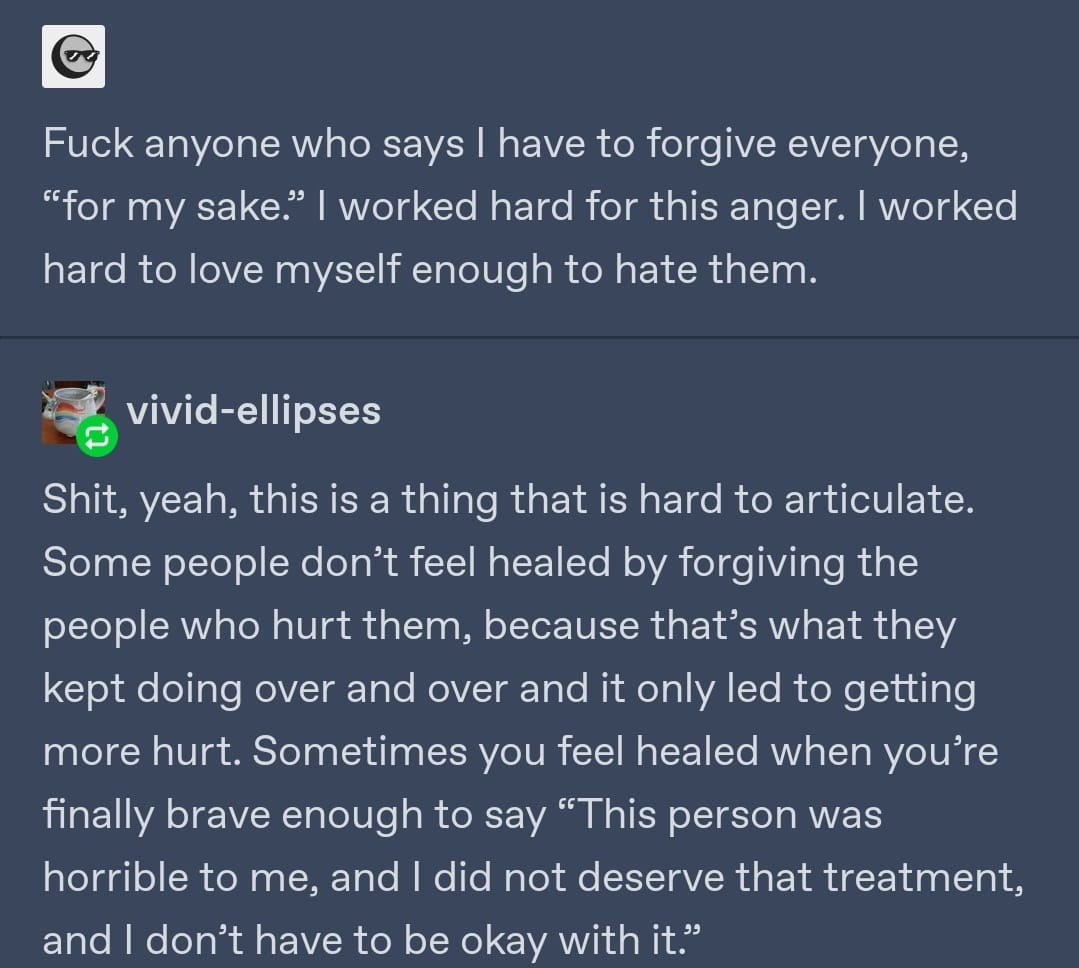“Scapegoating in a dysfunctional family system is a type of (unconscious) blame-shifting in which the family displaces their own psychological difficulties and complexes onto a specific family member. This process of projection, shaming, and blaming serves to divert attention away from the rest of the family’s mental and emotional problems via casting the scapegoated family member into the role of ‘identified patient’ (Bateson, 1972)... Because the scapegoating ‘story’ often follows the child into adulthood and may continue even after a parent’s death (e.g., via a dominant sibling or extended family member) there may seem to be no way out other than to limit or end contact with one’s entire family-of-origin.“

“Those who are victimized multiple times are also frequently targeted due to their assets, not just their vulnerabilities.
“Predatory people are on the lookout for empathic, resilient people – those who can bounce back from abusive incidents so they can continue the abuse cycle – as well as people with resources to exploit. Narcissists especially search for “shiny” targets – those who are attractive, successful and look good on their arm, because it boosts their image. If you are such a type, it is common for them to prey on you. As Dr. George Simon notes, victims of predators “tend to be conscientious and accommodating types. So, their good nature is ripe for exploitation. Moreover, manipulators play on your sensibilities, and often, your conscience.”

